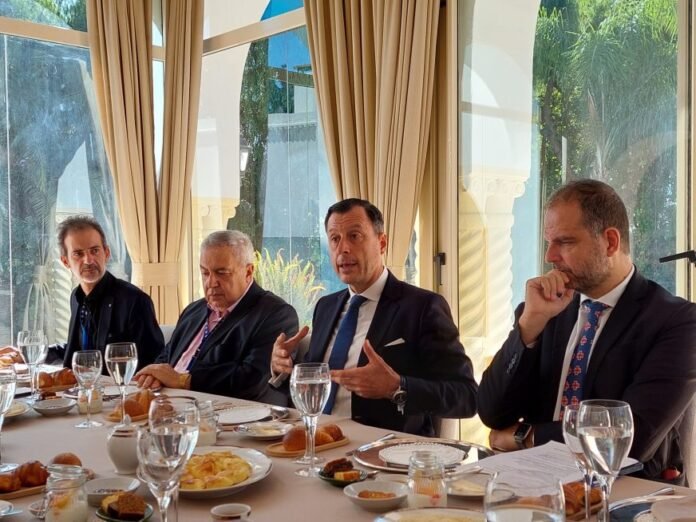What seemed at first a technical academic move quickly turned into a political controversy.
In October 2025, the European Commission announced the inclusion of Algeria in Erasmus+ as part of a new initiative — the “Pact for the Mediterranean.” Officially, it aims to build a shared academic space between the northern and southern shores of the Mediterranean.
Yet in Paris and Brussels alike, critics see a deeper issue: is Europe trading principles for pragmatism?
The Official Line: Knowledge as a Bridge
According to the Commission’s statement, the initiative seeks to “foster academic exchange, mobility, and cultural diversity.” Officials insist that education is a long-term investment for stability.
But the question remains: how far is the EU willing to go to expand its academic influence, and at what moral cost?
French Conservatives Denounce “Moral Incoherence”
In France, conservative MEP François-Xavier Bellamy, a prominent member of Les Républicains, lashed out at the decision in Le Figaro:
“To integrate a regime that imprisons writers and journalists is to betray the very values we claim to defend.”
Bellamy accused Brussels of turning Erasmus+ into “a political instrument that legitimizes authoritarian systems,” referring to the arrests of novelist Boualem Sansal and journalist Christophe Glize — both recently released under European pressure.
He called the move “a triumph of technocratic arrogance over ethical coherence.”
Brussels’ Defense: Dialogue Over Isolation
EU foreign-policy chief Kaja Kallas responded by reaffirming that the Mediterranean Pact “aims to build an academic space based on cooperation, pluralism, and shared prosperity.”
From her perspective, excluding Algeria would amount to closing the door on constructive engagement.
But many analysts remain skeptical. As one European policy expert put it:
“Education is becoming the new façade of diplomacy.”
Context: Between Migration Tensions and Strategic Interests
The controversy cannot be separated from the ongoing France-Algeria dispute over undocumented migration and deportations.
To Bellamy and his allies, the timing of the Erasmus expansion is “morally absurd”:
“A country refusing to cooperate on illegal migration is rewarded with an EU academic grant.”
Yet to others, it reveals the European Union’s pragmatic turn — a shift from idealism toward strategic engagement with its southern neighbors, balancing moral consistency with geopolitical leverage.
Investigative Questions That Matter
-
What exact clauses define Algeria’s participation in the Pact for the Mediterranean?
-
Are human-rights and academic-freedom benchmarks explicitly included?
-
What is the total budget and funding share allocated to Algerian universities?
-
Were Algerian institutions given genuine autonomy in joining the program?
-
How do Algerian students and academics perceive the initiative — as a real chance or a diplomatic showpiece?
-
What implications might this have for Franco-Algerian migration and cooperation policies?
Academic Hope vs. Political Optics
European universities welcome the initiative as a chance for cross-border collaboration in research and education.
However, human-rights groups warn that without accountability, Erasmus+ risks being reduced to a symbolic gesture.
As one NGO official remarked:
“Building bridges is meaningless if people can’t cross them freely.”
Conclusion: A Test of Europe’s Credibility
The EU’s decision to include Algeria in its Mediterranean academic strategy is more than a bureaucratic extension — it is a moral stress test for Europe’s foreign-policy identity.
If the program fosters genuine academic cooperation, it could strengthen the Euro-Mediterranean partnership.
But if it merely serves to polish diplomatic narratives, it may erode the very values the EU claims to embody.
Journalists, therefore, have a duty to keep asking: who truly benefits, who remains silent, and at what ethical cost?


